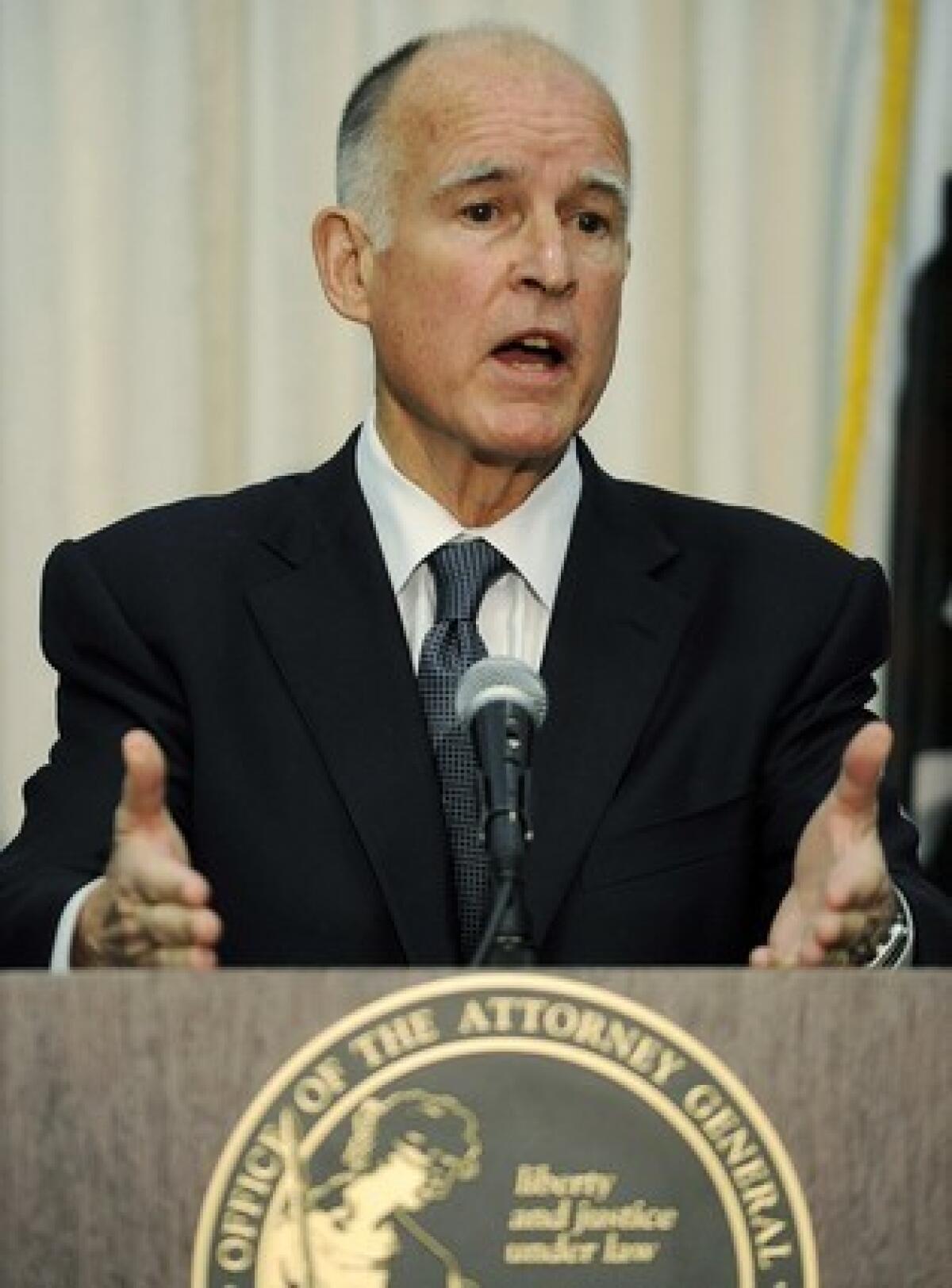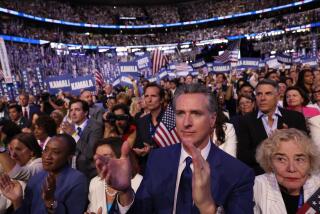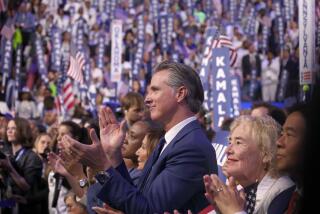Youth and age in California governor’s race

The pictures that dominated the news last week formed two parallel realities.
In one, Teddy Kennedy’s face was young and unlined, his jaw taut, his bearing vibrant, as he was when he campaigned for his brothers and when he ran for president, with one of his final victories the 1980 Democratic primary in California.
In another, the Massachusetts senator was grayed and stooped, if still smiling, as he was when longevity helped him forge a stunning array of accomplishments in the United States Senate.
Together they represented the evolution of one man who, unlike others in his family, had time on his side. But they also unwittingly evoked a perennial conflict in politics, between the young and old, change and experience.
Elections are often defined by those schisms, most recently in the 2008 presidential campaign when Barack Obama defeated two older and far more experienced opponents, Hillary Rodham Clinton and John McCain, in part by sailing the winds of change. And that is also the subtext of the Democratic campaign for governor of California in 2010.
The young and unlined one, in this case, is Gavin Newsom, the mayor of San Francisco, who is 41. His expected opponent is Jerry Brown, California’s attorney general. At one time the young and unlined one, he is now 71, and the hair he has left is silver.
The competition is not yet official; Brown, the governor from 1975 to 1983, has yet to formally announce his intentions. But he broadcast them yet again last week when he sent out a “campaign update” calling attention to a poll that had him, in the race for governor, 17 points ahead of Newsom in San Francisco.
Newsom is not, to be sure, running solely as the new fresh face. He argues that his experience running San Francisco positions him to improve California. But the dynamic of the campaign so far emphasizes his relative youth.
“The fact is Jerry Brown was governor in the ‘70s and I was a teenager in the ‘70s, or barely a teenager,” Newsom, born in 1967, said in an interview earlier this year. “We are of different generations. Who knows what that means to voters. . . . I think it would be unnatural of me not to make that point.”
Brown himself rode youth and change in his early career, but his approach these days emphasizes experience -- his tenures as secretary of state, governor, mayor of Oakland, attorney general.
Which argument wins depends mostly on the mood of voters.
In 1966, amid the cultural tumult of that decade, Ronald Reagan won the governorship despite his lack of electoral experience. In 2003, the recall election ushered in a second movie star, Arnold Schwarzenegger.
But otherwise, California has tended to side with the through-the-ranks, experienced politicians as their governors. And despite their reputation to the contrary, Democrats also have leaned that way in selecting their nominees.
In 1998, for example, they spurned Democrat Al Checchi’s persistent calls for change and nominated Gray Davis, whose slogan was “Experience Money Can’t Buy.” Davis was reelected before being recalled.
The bottom line is that when times are bad, voters like change. They do not, however, like risk. There can be a fine line between the two, and it is drawn by voters themselves.
“When voters perceive change as too much risk, they pull back, unless they are so fed up they don’t care,” said USC political scientist Sherry Bebitch Jeffe.
While Obama forwarded a fierce call for change, he won the presidency in part because he responded with a measured demeanor when the economy collapsed last fall. McCain responded in ways that made him look, to some voters, as the riskier of the two. Others went with Obama because, risk or not, they were simply fed up.
Newsom has styled his campaign after Obama’s, but it faces many challenges. There is fundraising, where he is lagging, and nagging negative perceptions of San Francisco among many state voters. He is best known for his full-throated defense of gay marriage rather than for astutely managing economic difficulties, which will likely be the focus of voters next year.
To win he must forward an argument for upending Brown that does not at the same time cast him as risky to California voters. His partisans insist it can be done.
Over the history of California, few winning governors have come from the ranks of mayors. Few have not held prior statewide office. That suggests an uphill climb for Newsom.
“These historical precedents,” said Garry South, a key Newsom advisor, “they are not determinative, but they are informative.”
Each Sunday, The Week examines implications of major stories. It is archived at latimes.com/theweek.
More to Read
Sign up for Essential California
The most important California stories and recommendations in your inbox every morning.
You may occasionally receive promotional content from the Los Angeles Times.











